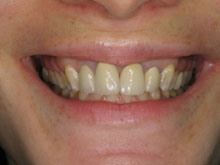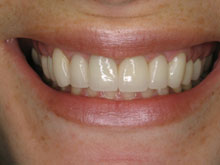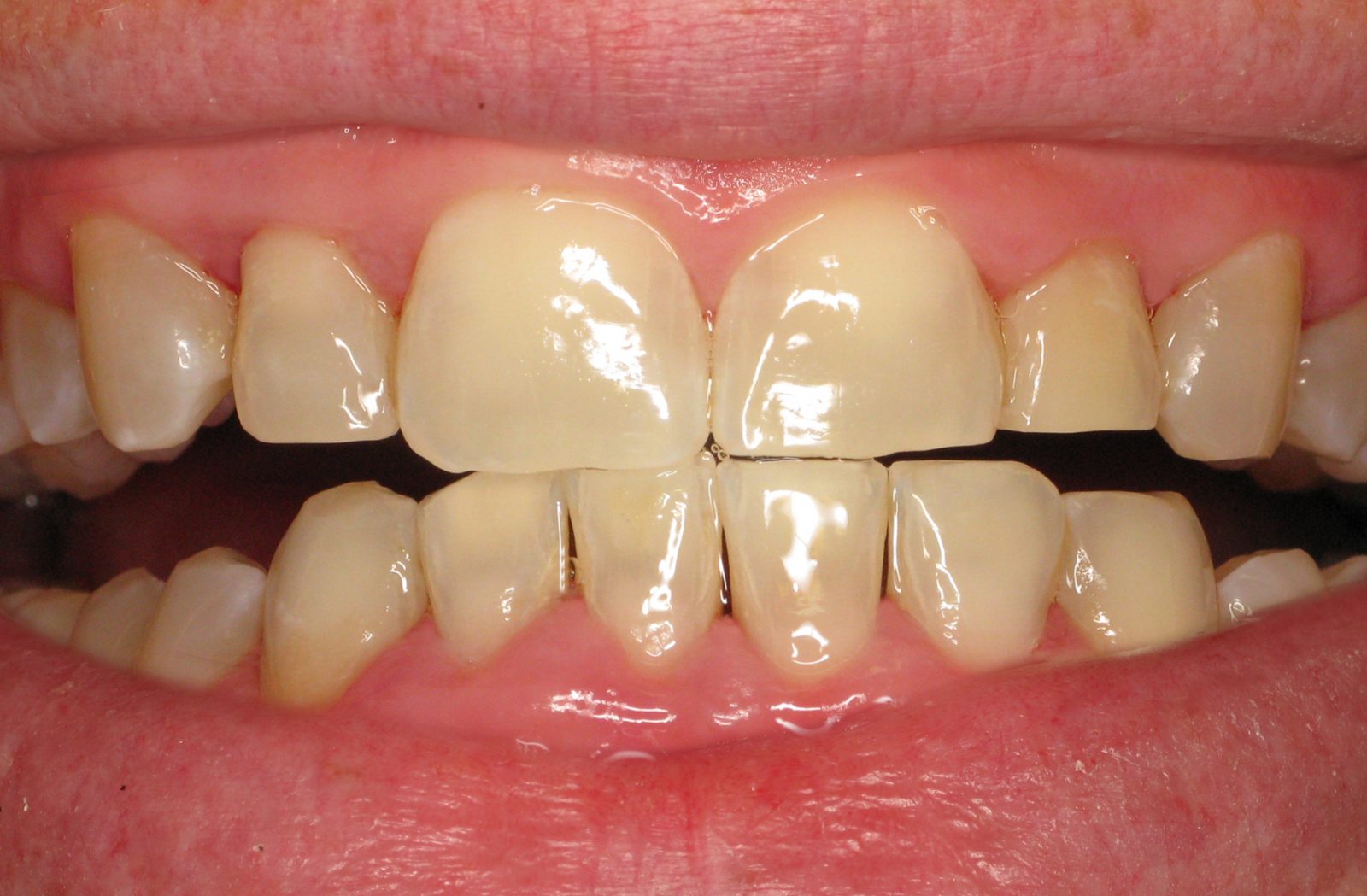The Potential Risks and Complications Associated with Gum Swelling

Swelling in the gums, if left unaddressed, can lead to potential risks and complications that affect oral health. Often indicative of underlying issues such as gum disease or inflammation, persistent gum swelling can result in several complications. These may include increased gum sensitivity, bleeding gums, bad breath, and eventual gum recession. Moreover, ongoing gum swelling may progress to more severe forms of periodontal disease, potentially leading to tooth mobility, bone loss, and eventual tooth loss if not appropriately treated. Chronic gum swelling can also impact overall well-being, potentially contributing to systemic health issues due to the body’s immune response to persistent oral inflammation.
How might gum swelling progress to advanced gum disease (periodontitis)?
Gum swelling, if not effectively managed, can progress to advanced gum disease, known as periodontitis. The progression from initial swelling to periodontitis is primarily driven by untreated inflammation and bacterial infection. When plaque—a sticky film containing harmful bacteria—accumulates along the gumline, it can trigger an immune response, leading to swelling and redness in the gums, a condition known as gingivitis.
If gingivitis is left unaddressed, the inflammation may extend to the supporting structures of the teeth. The body’s immune response, intended to combat the infection, can inadvertently cause damage to the surrounding tissues, leading to deep pockets between the gums and teeth. These pockets become a breeding ground for more aggressive bacteria, further exacerbating the infection and inflammation.
As periodontitis develops, the chronic inflammatory process affects the bone supporting the teeth. This can result in bone loss, compromising the stability of the teeth and contributing to increased gum swelling. The gums may also recede, exposing the tooth roots and making them more susceptible to decay and sensitivity.
Moreover, the progression of gum disease can lead to the formation of periodontal pockets, creating challenging-to-clean areas where bacteria thrive. This cycle of inflammation, bacterial infection, and tissue damage continues, eventually causing irreversible harm to the periodontal tissues and supporting structures.
Early intervention is crucial to prevent the progression of gum swelling to advanced gum disease. Professional dental cleanings, scaling and root planing, and personalized oral hygiene instructions are integral in managing gum disease and mitigating the risk of periodontitis. Regular dental check-ups are vital in monitoring gum health, enabling timely interventions, and preserving overall oral wellness.
How does increased gum sensitivity and discomfort affect oral health?
Increased gum sensitivity and discomfort can directly correlate with oral health, impacting various aspects of the oral cavity and potentially leading to complications if not addressed promptly. Here’s how heightened gum sensitivity influences oral health:
- Pain and Discomfort: Gum sensitivity often manifests as pain or discomfort, making routine activities like chewing, brushing, and flossing challenging. Persistent pain may discourage individuals from maintaining proper oral hygiene, increasing the risk of plaque and tartar buildup.
- Altered Oral Hygiene Habits: Individuals experiencing gum sensitivity may alter their oral hygiene habits to avoid discomfort. This could result in inadequate cleaning, leaving plaque and bacteria on the teeth and gums, contributing to the progression of gum disease.
- Bleeding Gums: Sensitivity in the gums may lead to bleeding during brushing or flossing. Bleeding gums are an early sign of gum disease (gingivitis) and can progress to more severe forms (periodontitis) if not addressed. The presence of blood indicates inflammation and potential infection.
- Gum Recession: Persistent gum sensitivity can contribute to gum recession, where the gums pull away from the teeth. Exposed tooth roots may become more sensitive to temperature changes and touch, increasing the risk of cavities on the roots.
- Tooth Sensitivity: Gum sensitivity often coincides with tooth sensitivity, where the teeth react to hot, cold, sweet, or acidic stimuli. This sensitivity may result from exposed tooth roots, enamel erosion, or other dental issues, impacting overall comfort and oral health.
- Impact on Daily Activities: Discomfort from gum sensitivity can affect an individual’s ability to eat, speak, and enjoy daily activities. Avoiding certain foods or behaviors may result in an imbalanced diet, impacting overall health.
Addressing gum sensitivity involves identifying and treating the underlying causes, including gum disease, tooth decay, or improper oral care. Professional dental care, including regular check-ups and cleanings, is crucial to monitor and manage gum sensitivity effectively. Additionally, using desensitizing toothpaste, practicing gentle oral hygiene, and seeking prompt dental attention for any signs of sensitivity contribute to maintaining optimal oral health.
How might pus formation (abscesses) occur in severe cases due to swelling?
Pus formation, often associated with abscesses, can occur in severe cases of gum swelling, particularly when inflammation and infection reach an advanced stage. This process is closely linked to the progression of gum disease, where untreated swelling can lead to complications. Here’s how pus formation might occur in severe cases due to swelling:
- Bacterial Infection: The primary cause of pus formation is bacterial infection. In cases of advanced gum disease, the bacteria that thrive in plaque and tartar can penetrate deeper into the periodontal tissues, leading to more severe inflammation.
- Deep Gum Pockets: As gum disease progresses, the inflammation may cause the formation of deep pockets between the gums and teeth. These pockets become breeding grounds for bacteria, making cleaning effectively through regular oral hygiene practices challenging.
- Tissue Damage: Chronic inflammation damages the gum tissues and the supporting structures around the teeth. The immune system’s response to the persistent infection can lead to the breakdown of connective tissues, creating spaces where pus can accumulate.
- Abscess Formation: An abscess may occur when the infection is uncontrolled. An abscess is a localized collection of pus, often surrounded by inflamed tissue. In the context of gum disease, this can manifest as a periodontal or gum abscess.
- Symptoms: Pus formation in the gums is often accompanied by symptoms such as swelling, redness, tenderness, and severe pain. In some cases, an abscess may rupture, leading to the release of pus and temporary relief of symptoms. However, this doesn’t resolve the underlying issue.
- Systemic Effects: An abscess indicates a severe infection that can have systemic effects. Bacteria and toxins from the abscess can enter the bloodstream, potentially affecting other body parts and contributing to overall health issues.
Addressing pus formation in severe cases due to gum swelling requires professional dental intervention. Treatment may involve abscess drainage, antibiotics to control infection, and comprehensive periodontal therapy to manage gum disease. Timely and appropriate care is crucial to prevent the spread of infection, alleviate symptoms, and preserve overall oral health. If you are experiencing these symptoms and suffer from gum disease, call (877) 440-3564 to schedule a consultation with our Laser Periodontics & Gum Surgery team.
What risks are associated with tooth loss if gum swelling is left untreated?
Leaving gum swelling untreated poses significant risks to oral health, with one of the most severe consequences being tooth loss. Several factors contribute to the correlation between untreated gum swelling and the risk of tooth loss:
- Progression of Gum Disease: Gum swelling is often an early sign of gum disease, such as gingivitis. If the underlying causes of swelling, such as plaque and bacteria, are not addressed through proper oral hygiene and professional dental care, gingivitis can progress to more severe forms of gum disease, including periodontitis.
- Periodontal Pockets and Infection: Deep periodontal pockets form between the gums and teeth as gum disease advances. These pockets become breeding grounds for bacteria, leading to persistent infection and inflammation. The immune response aimed at combating the infection may inadvertently cause damage to the surrounding structures, including the bone supporting the teeth.
- Bone Loss: Progressive gum disease often results in the loss of bone density in the jaw, compromising the stability of the teeth. As the bone supporting the teeth diminishes, the risk of tooth mobility and eventual tooth loss increases.
- Gum Recession: Swelling and inflammation can contribute to gum recession, where the gums pull away from the teeth. Exposed tooth roots become more vulnerable to decay and are less firmly anchored in the jaw, increasing the likelihood of tooth loss.
- Weakened Tooth Attachment: The connective tissues that secure the teeth in the jaw can be compromised by persistent gum swelling. Weakened attachment can lead to increased tooth mobility and eventual loss.
- Compromised Tooth-Supporting Structures: Untreated gum disease can compromise the ligaments and fibers that support the teeth, contributing to a domino effect of structural damage that may ultimately lead to tooth loss.
- Systemic Health Implications: Chronic oral infections associated with untreated gum swelling can have systemic implications, affecting overall health. Research suggests potential links between periodontal disease and systemic conditions such as cardiovascular disease and diabetes.
To mitigate the risks of tooth loss associated with untreated gum swelling, it is crucial to seek prompt dental care. Professional interventions, including scaling and root planing, along with consistent oral hygiene practices, can effectively manage gum disease and preserve the health of the teeth and supporting structures. Regular dental check-ups play a vital role in early detection and intervention, helping prevent the progression of advanced gum disease and the risk of tooth loss.






